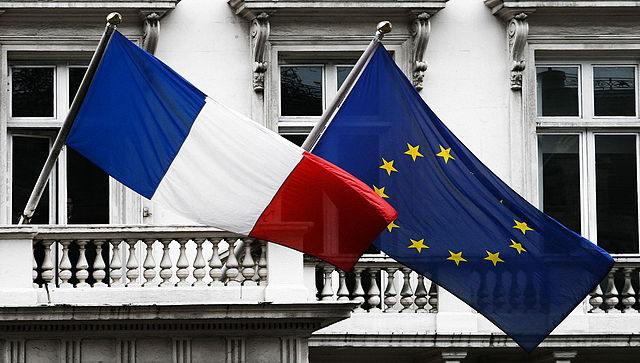Is The Future Of The EU French? Posted by John Bauer on Jun 29, 2016 in Culture
The recent Brexit vote in the UK has left many people wondering about the future of the EU. One aspect in particular has been questioned: the role of l’anglais (English) now that the UK is no longer a member, and the role of the other langues de travail (working languages), French and German.
The role of French in the EU has greatly diminished since its creation. Les Français (the French) were not always pleased with this and until recently were sometimes very vocal about the issue. L’ex-président français (the former French president), Jacques Chirac, famously left une reunion (a meeting) à Bruxelles when the French businessman, Ernest-Antoine Seillière, said:
“I will express myself in English because it is the language of business.”
Jacques Chirac comments on the incident. A translation is provided in the description of the video.
Any linguistic tension has mostly died down in the past decade, although les Français are still known to make mistakes. It has become almost universally accepted that l’anglais is the main langue de travail.
Cependant, tout a changé !
However, everything has changed!
According to EU law, members are allowed one official language, and seulement le Royaume-Uni (only the United Kingdom) chose l’anglais as its official language in the EU.
Mais il y a d’autres pays anglophones dans l’Union européenne ?
But there are other English speaking countries in the European Union?
Tous les autres pays anglophones (all the other English speaking countries) chose a different language as their official language dans l’UE.
- L’Irlande (Ireland) chose le gaélique irlandais (Irish Gaelic)
- Malte (Malta) chose le maltais (Maltese)
- Le Chypre (Cyprus) chose le grec (Greek)
Having one of those countries change their language or adding l’anglais as a separate official language would be very hard to do.
Changing a language would require a unanimous vote, and it’s always difficult to get tous les pays (all the countries) to agree on something.
Allowing un pays (a country) to have two official languages or allowing a non-member language into the EU would open up the question for other languages used throughout the continent like le catalan, le corse, le russe, etc (Catalan, Corsican, Russian, etc).
The other issue is that en pratique (in practice), l’anglais is the most commonly used language across Europe. It is also the most commonly used langue de travail in l’Union européenne (with the notable exceptions of le parlement européen à Strasbourg and la Cour de justice européenne).
L’anglais is also spoken as a second language by environ (about) around 38% of Europeans. However, le français is spoken natively by environ 80 millions de personnes en Europe and l’allemand (German) by environ 100 millions de personnes en Europe.
Cela dit (that said), it looks like l’anglais will continue to be used as la langue véhiculaire (the lingua franca) of Europe and l’Union européenne, but the recent vote au Royaume-uni raises questions about the legality of its continued use.
En tout cas (in any case), the role of le français dans l’Union européenne will likely be discussed while these changes take place.

Build vocabulary, practice pronunciation, and more with Transparent Language Online. Available anytime, anywhere, on any device.




